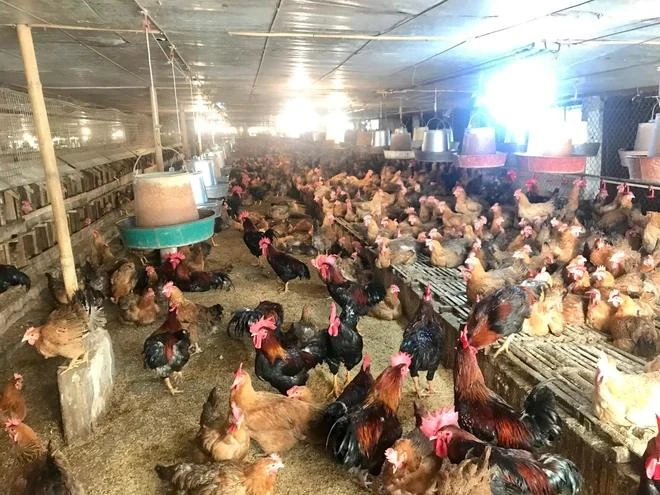Agricultural sector aiming for 3.2-4% growth in 2024
Vietnam's agricultural, forestry, and fisheries exports in the first nine months of 2024 performed well, continuing their growth trend. However, the damage caused by natural disasters in the months has led the Ministry of Agriculture and Rural Development to implementing drastic measures to restore production in order to achieve the yearly growth targets, according to Deputy Minister Phung Duc Tien.
Talking to the press, Tien said that due to the impact of natural disasters, particularly after Typhoon Yagi, agricultural production in the northern mountainous provinces has suffered significant damage.
However, the agricultural scale in these provinces is not large, and exports have mainly come from the southern and central regions. As a result, the growth rate of agricultural, forestry, and fisheries exports has remained steady and even increased compared to that in the first eight months of this year.
In the period, agricultural export turnover totaled 46.28 billion USD, while the import value reached 32.42 billion USD, resulting in a trade surplus of 13.86 billion USD, up 71.2% year-on-year.

Regarding the agricultural production in the first nine months of this year, the Deputy Minister said indicators were positive. In the period, the harvested rice output reached over 34 million tonnes, an increase of 1.5%.
He attributed this growth to regional response plans to harvest rice before the typhoon, which helped mitigate damage in September. However, he noted that the flooding could impact rice production results tied to the last three months of the year.
In terms of husbandry, the total meat production reached 6.13 million tonnes, up 4.8% year-on-year. Although the livestock sector suffered losses of up to 11 trillion VND (436 million USD), the sector targeted total meat production of over 8 million tonnes this year, higher than the 7.79 million tonnes in 2023.
The sector is implementing measures to restore livestock production to compensate for the losses caused by natural disasters, with a focus on raising short-term livestock and promoting large-scale livestock localities such as Dong Nai, Nghe An, and Thanh Hoa to offset the production losses in the northern localities.
Meanwhile, the fisheries production in January-September reached over 7 million tonnes, a year-on-year rise of 2.4%, and growth momentum seen in both catches and aquaculture.

The Ministry of Agriculture and Rural Development recently held meetings with southern localities to promote growth in the fisheries sector, aiming to achieve an export revenue target of 7.23 billion USD, up 7.9%.
In the forestry sector, despite 170,000 hectares impacted by the typhoon, 187,200 hectares of forest were planted in the first nine months, a year-on-year increase of 2.5%. The volume of timber harvested surpassed over 16 million cu.m, up 7%.
The ministry is taking decisive directions to maintain growth and quickly restore agricultural production. The goal is to achieve an agricultural growth rate of 3.2-4% in 2024.
Regarding India’s removal of its ban against white rice exports, the official stated that this is the second time it has done so. The removal will impact Vietnam's rice exports, but the effect will be not overly significant.
Currently, the country has a relatively stable market share, value, and quality of exported rice. In the first nine months of 2024, it shipped more than 7 million tonnes of the grain abroad for 4.37 billion USD, up 23.5% in value and 9.2% in volume./.






